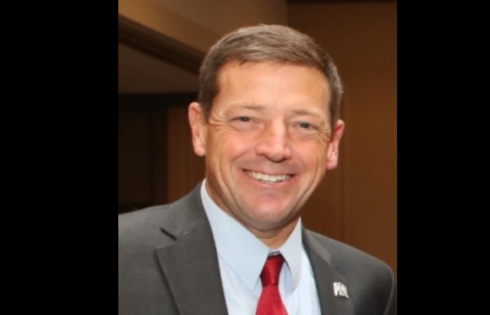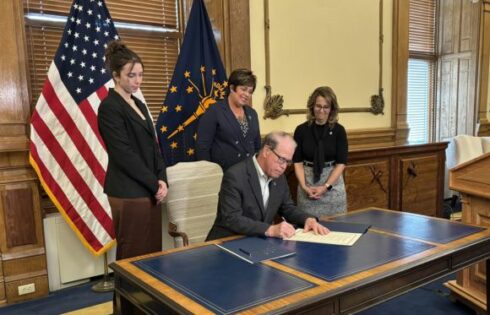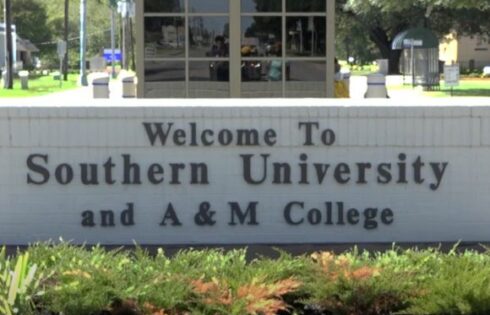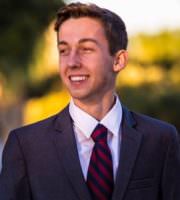
Intercollegiate Studies Institute chapter rejected at Hobart and William Smith Colleges
Two female conservative students who recently tried to obtain official club status for an Intercollegiate Studies Institute chapter at Hobart and William Smith Colleges had their request denied, reportedly over concerns it may “cause stress to the student body.”
The nonprofit Intercollegiate Studies Institute explores intellectual conservatism, such as free markets and Constitutional liberty, and supports campus chapters across the nation. It prioritizes educating minds over campus activism to allow students to learn about principles they might not hear from their typical college professors.
ISI chapters host speakers, read and discuss books with varying conservative viewpoints, and coordinate meet-ups with like-minded students.
Hannah Sailer and Jenny Yuodsnukis, students at Hobart and William Smith Colleges, two private liberal arts colleges in New York that work together to educate students, said they wanted a fresh place to discuss conservative ideas and decided to form an ISI chapter earlier this fall semester.
The two women sent in their presentation to the student activities advisor, who reportedly said it looked great and that they could present it to the colleges’ joint student government. But at that October meeting, Sailer and Yuodsnukis said they were barraged by their peers with antagonistic questions for over 30 minutes.
“They asked ‘How can you make sure that [your club] is not going to promote racist rhetoric around campus?’ and ‘Would you be interested, if your club was approved, in doing diversity and inclusion courses to make sure [your club] is knowledgeable about diversity and inclusion,’” Sailer said.
Questions then delved into abortion and immigration and other topics, the two said in a telephone interview with The College Fix.
The women replied that they do not necessarily agree with every single view of the conservative authors that they will be reading, but that’s the purpose. As an intellectual conservative group, they want to read from viewpoints that differ from their own thoughts.
Sailer brought up how the club was going to read a book by a conservative author who thought women should primarily stay at home.
“There’s a broad spectrum of conservatives, just like liberals and independents. Not all conservatives, liberals, or independents think alike. And I tried explaining this to them when [the audience] asked me how I could support [reading the book]. I said, ‘Well, I’m a woman, I’m in college to get a job and to support myself after college, so obviously I don’t necessarily agree with [the book], but at the end of the day I still identify as a conservative,’” Sailer said.
A few days later, Sailer and Yuodsnukis said they received an email informing them that their proposal to obtain club status had been denied. The email noted that the university would support a conservative groups on campus, just not one that is linked to ISI, they said.
“It just makes me kind of angry, because yes this is a liberal school, but I feel like people have a hard time accepting others’ beliefs, especially when they don’t align with their own,” Sailor said.
Hobart and William Smith Colleges send a schoolwide email after every student government meeting informing the community about what went on, including what club proposals were approved, what financing was given to clubs, and other details.
After having their club denied, the two went back through all of these schoolwide emails since 2017 and found that out of a total of 24 club proposals since that time, every proposal was approved except for their ISI chapter.
The College Fix reached out to the student government for comment.
Hobart Student Government Secretary Andrew Guedea said in response “they were denied club status by a vote of other students. The executive boards of the governments do not vote in club status proposals, so this was a vote from their peers.”
Guedea also stated Sailer and Yuodsnukis condemned ISI’s stances on social issues and “everything about the organization but the literature,” and that they “had emphasized the club was essentially a book club for conservative ideas.”
“Ultimately, the two students were denied club status for ISI. We’d also like to note while different, we currently do have a chapter of Young Americans for Freedom and the two presenting students were the former club leaders of YAF,” he said.
The College Fix also reached out to the university regarding the issue. Spokesperson Catherine Williams stated that officials “are aware of the situation and are working with all of the students involved to offer support and find a resolution.”
When asked about the current status of their ISI chapter, Sailer and Yuodsnukis replied that it is “up in the air,” but that the two of them plan to keep fighting for their club’s official recognition.
Since the October meeting, they have met with the president of the colleges, Joyce Jacobsen, who they say voiced support of their group and encouraged them to keep working until they get approval for their ISI chapter.
Sailer and Yuodsnukis have also met again with the student activities advisor who suggested that the two of them meet with the student government exclusively and walk them through the ISI website and “pinpoint where ISI would not be racist and would not cause stress to the student body,” Yuodsnukis told The College Fix, clearly indicating she thought this was too far over the top for a club proposal.
When asked by The College Fix how they each felt about the situation as a whole, Sailer and Yuodsnukis explained their personal thoughts on the matter.
“When I was approached by ISI to start this club with [Yuodsnukis], I was so excited because I thought there is no way that [the university] can say no because there are other political clubs on campus…and I understood that not everyone likes us, but I didn’t think we would be denied. I felt like the whole situation was very inappropriate and unprofessional in the way that [the university] handled it,” Sailer said.
Said Yuodsnukis: “I’m not surprised this is happening…but we’ll keep trudging and this is what we’re going to have to deal with as conservative students.”
Yuodsnukis also noted that now that she is in upper-division classes, she does not see very much liberal pushback in class, but more just within the student body and culture on campus.
She described it as “disheartening.”
“When people tell you that there are rumors about you, and people are staring at you, I think that is what gets to me,” she said. “It’s the everyday little things … That’s our reality.”
MORE: Why this nonprofit prioritizes conservative thought on campus
Like The College Fix on Facebook / Follow us on Twitter






Please join the conversation about our stories on Facebook, Twitter, Instagram, Reddit, MeWe, Rumble, Gab, Minds and Gettr.